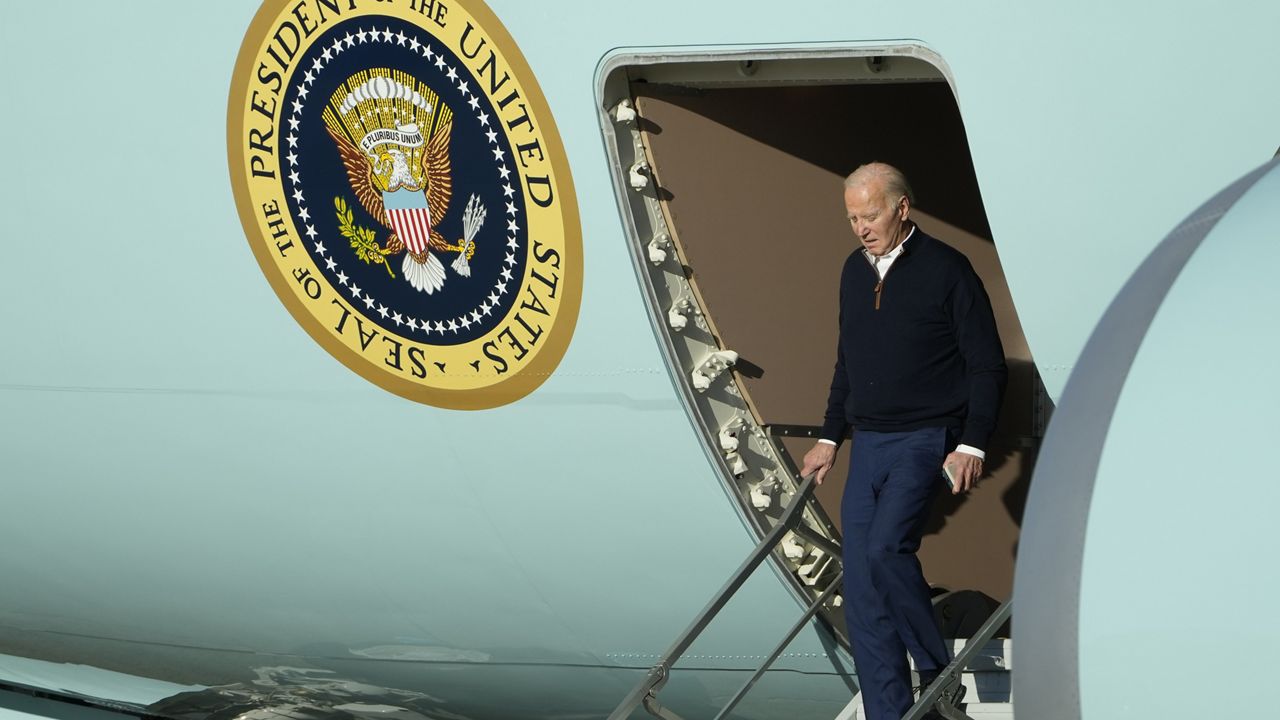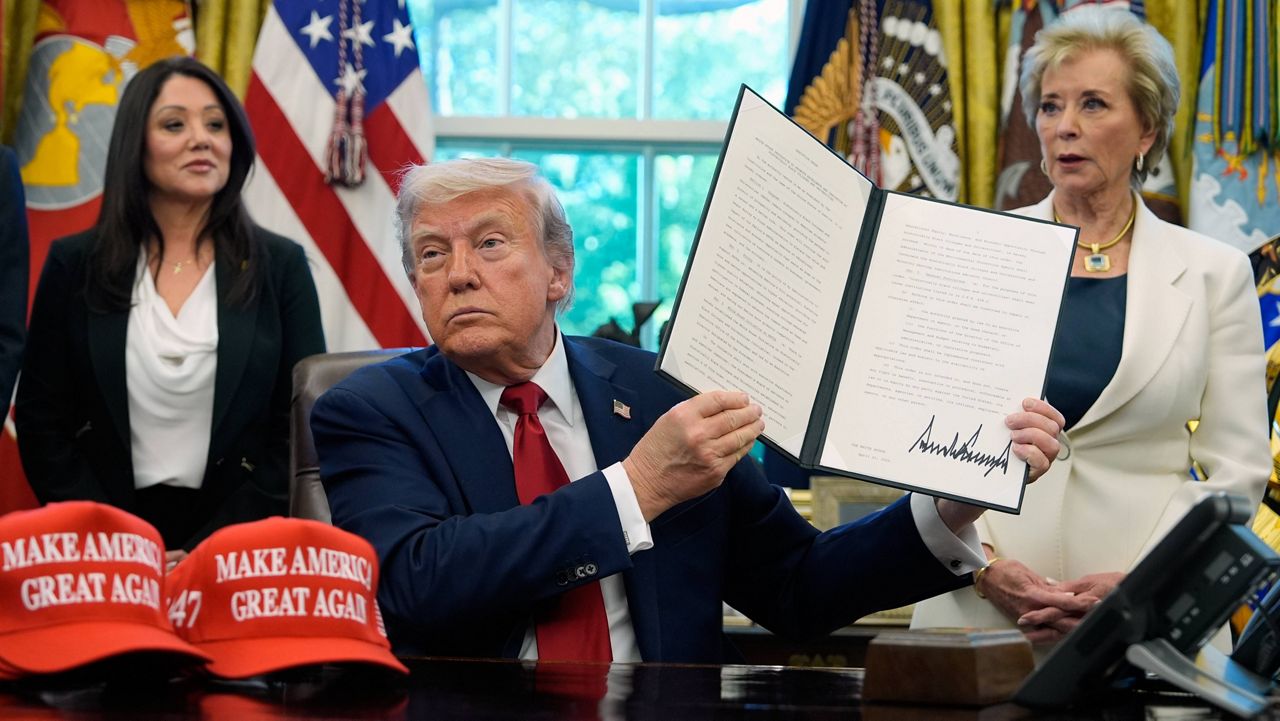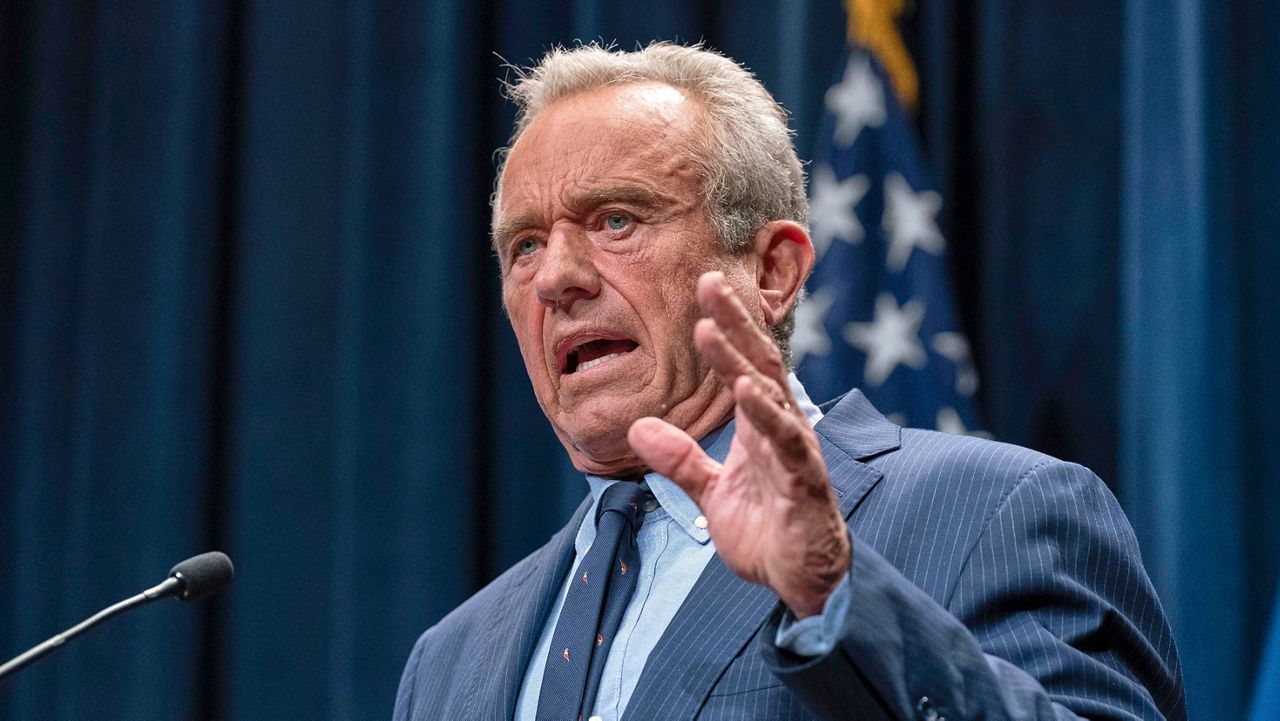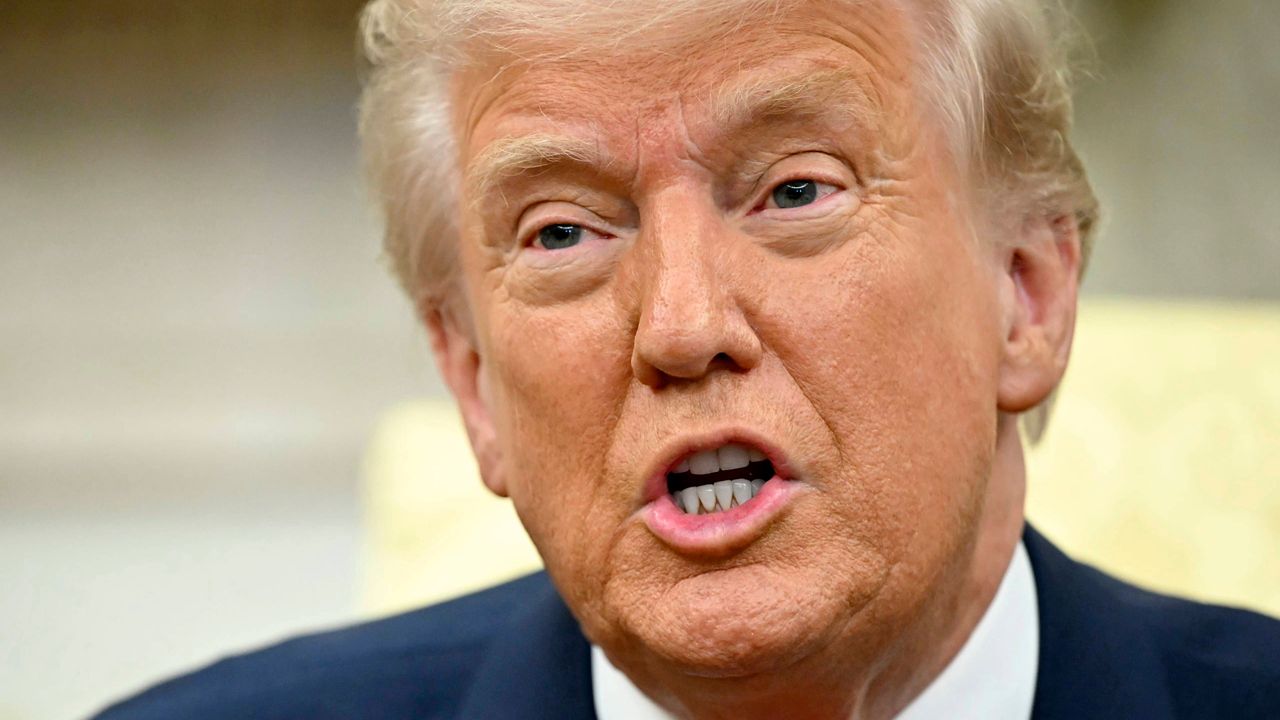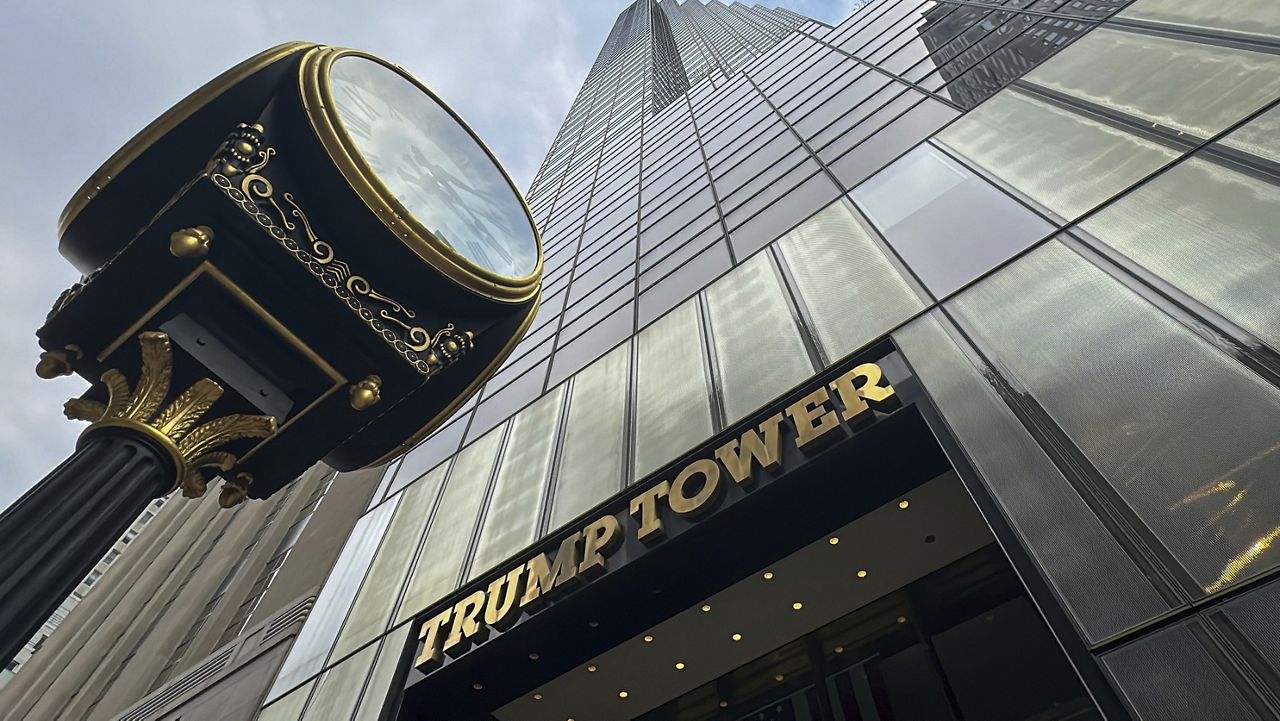President Joe Biden on Monday told reporters he doesn’t have a meeting planned with Israeli Prime Minister Benjamin Netanyahu after he was captured on a hot mic following last week’s State of the Union address saying he and the Israeli leader need to have a “come to Jesus meeting.”
“No,” Biden told reporters on his way back to the White House from a stop in New Hampshire when asked if he has a “come to Jesus” meeting scheduled with Netanyahu.
“We’ll see what happens,” he replied when asked if he plans to set a meeting up.
Following his State of the Union speech last Thursday, Biden was heard telling Sen. Michael Bennet, D-Colo., that he and the Israeli leader will need to have a “come to Jesus meeting" over the country's ongoing war with Hamas.
In the exchange, Bennet congratulated Biden on his speech and urged the president to keep pressing Netanyahu on growing humanitarian concerns in Gaza. Secretary of State Antony Blinken and Transportation Secretary Pete Buttigieg were also part of the brief conversation.
Biden then responds using Netanyahu’s nickname, saying, “I told him, Bibi, and don’t repeat this, but you and I are going to have a ‘come to Jesus’ meeting.”
An aide to the president standing nearby then speaks quietly into the president’s ear, appearing to alert Biden that microphones remained on as he worked the room.
“I’m on a hot mic here,” Biden says after being alerted. “Good. That’s good.”
It comes as Biden has appeared to be ramping up public pressure on Israel to do more to address the humanitarian crisis in Gaza, where more than 30,000 Palestinians have been killed, according to the Hamas-run health ministry, and hundreds of thousands going hungry.
“He has a right to defend Israel, a right to continue to pursue Hamas,” Biden said of Netanyahu in an MSNBC interview with Jonathan Capehart on Saturday. “But he must, he must, he must pay more attention to the innocent lives being lost as a consequence of the actions taken. He’s hurting...in my view, he’s hurting Israel more than helping Israel.”
The U.S. this month began airdrops and announced it will establish a temporary pier to get badly needed aid into Gaza via sea. U.N. officials have warned at least one quarter of Gaza’s 2.3 million people are one step away from famine. The extraordinary measures to get aid into Gaza have come as Israel has resisted U.S. calls to allow more in via land routes.
Vice President Kamala Harris also drew widespread attention when she called for an “immediate ceasefire for at least the next six weeks,” during remarks in Selma, Alabama just more than a week ago. The next day, Harris hosted Benny Gantz, a member of Israel’s War Cabinet, at the White House in defiance of Netanyahu.
In an interview with Fox News on Monday, Netanyahu appeared to brush aside a warning from Biden over the weekend about an invasion of the Gaza city of Rafah being a “red line.”
“Look, it's either Israel or Hamas. There's no middle way," Netanyahu told Fox News co-host Brian Kilmeade.
"I mean, we have to have that victory. We can't have three-quarters of a victory. We can't have two-thirds of a victory, because Hamas will reconstitute itself with these four battalions in Rafah, reconquer the Gaza Strip and do the October 7th massacre over and over and over again,” Netanyahu continued. “And for us, for Israel, not merely for me, but for the people of Israel, that's a red line. We can't let Hamas survive.”
The Israeli leader’s comments followed Biden’s assertion in his interview with MSNBC on Saturday that a potential Israeli invasion of Rafah, where more than 1.3 million Palestinians are sheltering, would be “a red line” for him.
Yet, in just the next sentence, the president quickly noted that he is “never going to leave Israel,” and would not cut off weapons like the Iron Dome missile interceptors which protect the Israeli civilian populace from rocket attacks in the region.
“It is a red line,” he said, when asked about Rafah, “but I’m never going to leave Israel. The defense of Israel is still critical, so there’s no red line. I'm going to cut off all weapons so they don’t have the Iron Dome to protect them.”
In the interview, Biden said he was willing to make his case directly to the Israeli Knesset, its parliament, including by making another trip to the country. He traveled to Israel weeks after the Oct. 7. attack. He declined to elaborate on how or whether such a trip might materialize.
On Monday, he told reporters he does not have any plan to address the Knesset “at this moment.”
The president had hoped to have an extended cease-fire in place by the start of the Muslim holy month of Ramadan, which is set to begin Monday. Biden administration officials see a deal on a temporary truce in exchange for dozens of hostages as a crucial step toward finding an eventual permanent end to the conflict.
Last week, Biden warned of a “very, very dangerous” situation if fighting is still ongoing by Ramadan.
“There has gotta be a cease-fire because Ramadan – if we get into a circumstance where this continues to Ramadam, Israel and Jerusalem, it could be very, very dangerous,” Biden told reporters boarding Air Force One to return to the White House from Camp David.
On Friday, as Ramadan approached still with a cease-fire deal in place, when asked if he was worried about violence, Biden replied: "I sure am."




